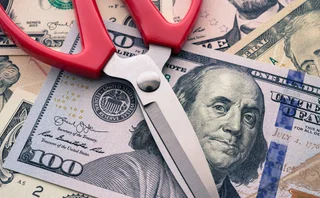
Testing times

The dramatic developments of the past month and the resulting shifts in asset prices have left many industry leaders struggling to get a handle on the implications for their businesses. In part, that's because the events are consistently dramatic and market-moving - although not always in the expected direction.
Within days of each other in September, Lehman Brothers filed for bankruptcy protection and AIG received an $85 billion rescue from the US government - and this only shortly after the placement of mortgage agencies Fannie Mae and Freddie Mac into 'conservatorship'. The US Treasury then moved to obtain $700 billion to bail out the markets. US politicians dithered and then approved use of the funds.
In Europe, Benelux bancassurer Fortis and Germany's biggest mortgage lender, Eurohypo, both received state aid. Then the UK government moved to inject £50 billion ($86 billion) of capital into UK banks in exchange for equity - a move likely to be copied by other governments, as direct capital injections are a relatively cheap way to support lending, due to multiplier effects.
Meanwhile, central banks made co-ordinated rate cuts in October, led by the Reserve Bank of Australia's one percentage point cut to 6%, followed by half percentage points cut by the US Federal Reserve to 1.5%, the European Central Bank to 3.75% and the Bank of England to 4.5%, along with a 0.27 percentage point cut in China's benchmark one-year lending rate to 7.20%.
Any one of these events in isolation would typically represent a huge dislocation in the financial markets and a major headache for the book positions of dealers and their counterparties. In conjunction, the pressure was unprecedented.
At the same time, OTC financial derivatives have drawn fire, notably from the US' Securities and Exchange Commission and the New York Insurance Department, which have criticised credit default swaps and raised the issue of regulation.
Putting aside the practical difficulty of regulating a global market, the bilateral derivatives market is one of a few to have continued trading during the crisis. And credit derivatives - still relatively new instruments - have stood up to the test following the credit events at Fannie Mae, Freddie Mac and Lehman Brothers, along with the subsequent auctions of instruments linked to those names.
What appears to be required - apart from dealers cleaning up their act on clearing, processing and settlement - is improved understanding of the risks and rewards linked to the use of derivatives, as with any financial instrument. And that depends on embedded risk management, in terms of systems, staff and culture.
Christopher Jeffery.
Only users who have a paid subscription or are part of a corporate subscription are able to print or copy content.
To access these options, along with all other subscription benefits, please contact info@risk.net or view our subscription options here: http://subscriptions.risk.net/subscribe
You are currently unable to print this content. Please contact info@risk.net to find out more.
You are currently unable to copy this content. Please contact info@risk.net to find out more.
Copyright Infopro Digital Limited. All rights reserved.
As outlined in our terms and conditions, https://www.infopro-digital.com/terms-and-conditions/subscriptions/ (point 2.4), printing is limited to a single copy.
If you would like to purchase additional rights please email info@risk.net
Copyright Infopro Digital Limited. All rights reserved.
You may share this content using our article tools. As outlined in our terms and conditions, https://www.infopro-digital.com/terms-and-conditions/subscriptions/ (clause 2.4), an Authorised User may only make one copy of the materials for their own personal use. You must also comply with the restrictions in clause 2.5.
If you would like to purchase additional rights please email info@risk.net
More on Markets
Banks eye cost cuts ahead of RateStream Treasuries push
FX SpotStream’s move into rates seen as both fee-saver and potential boost to streaming execution
Real money investors cash in as dispersion nears record levels
Implied spreads were elevated to start 2026. Realised levels have been “almost unprecedented”
JP Morgan gives corporates an FX blockchain boost
Kinexys digital platform speeds cross-currency, cross-entity client payments
China eases cross-border grip in new derivatives rules
Lawyers hail return to a “more orthodox territorial approach” to regulating the market
Fannie, Freddie mortgage buying unlikely to drive rates
Adding $200 billion of MBSs in a $9 trillion market won’t revive old hedging footprint
Market-makers seek answers about CME’s cloud move
Silence on data centre changes fuels speculation over how new matching engine will handle orders
Neural networks unleashed: joint SPX/VIX calibration has never been faster
SPX and VIX options can be jointly calibrated in real time with deep neural networks
Ardagh CDS outcome satisfies some, but presents more questions
Early restructuring trigger and asset-package delivery could signify a new era for European trades








